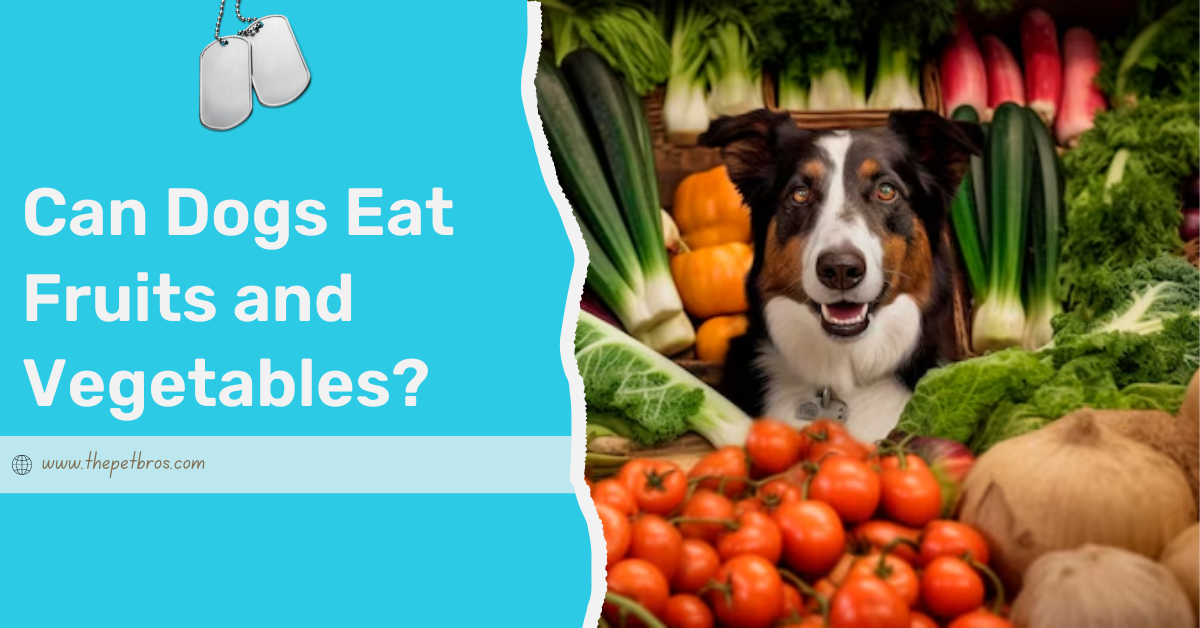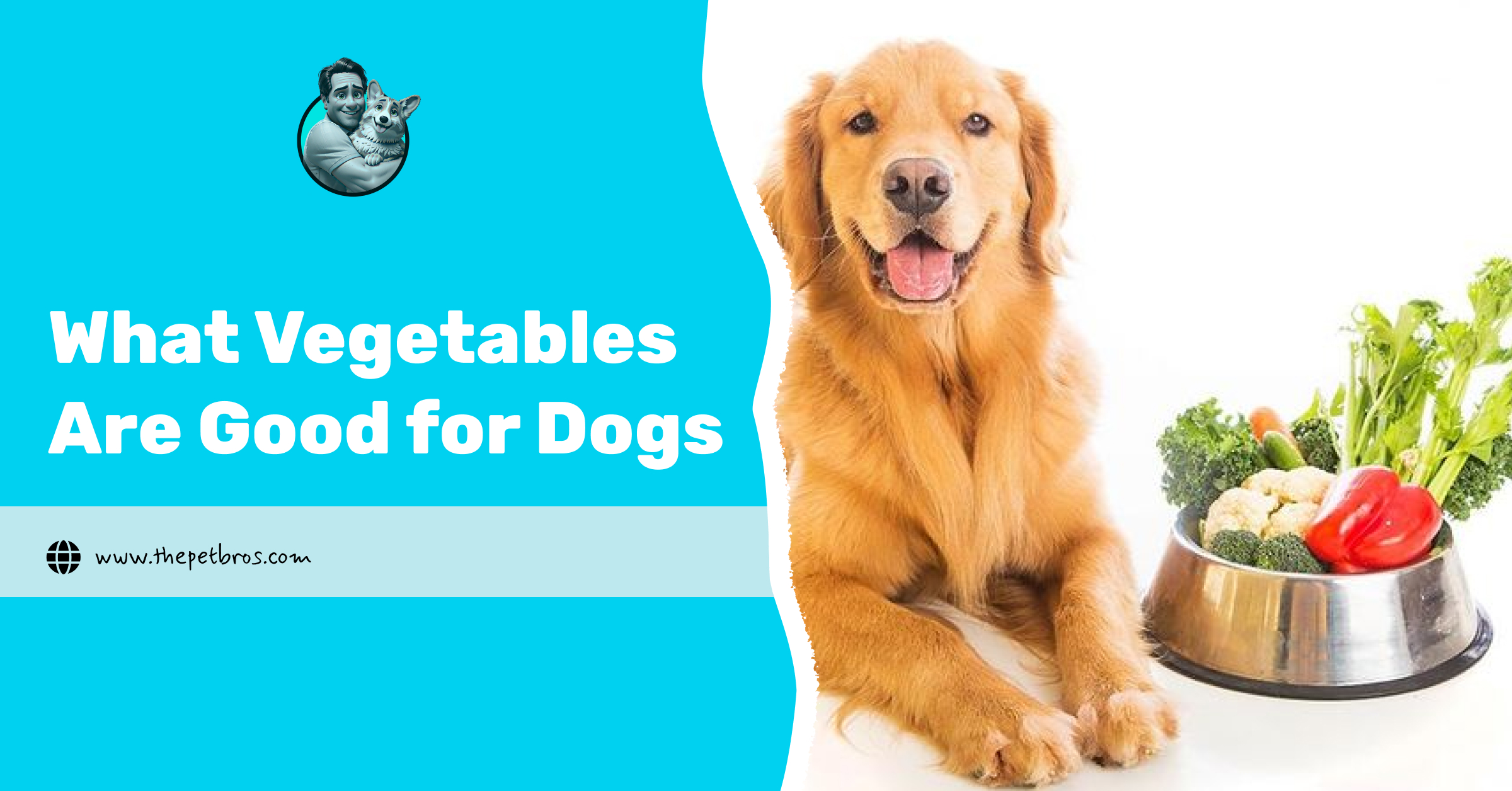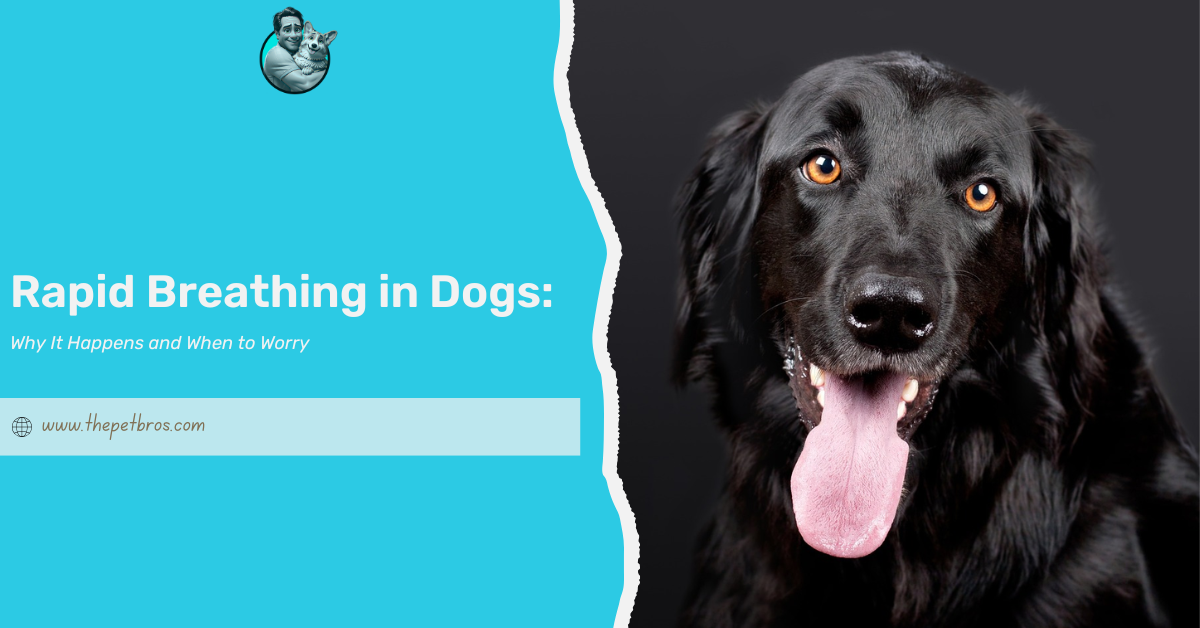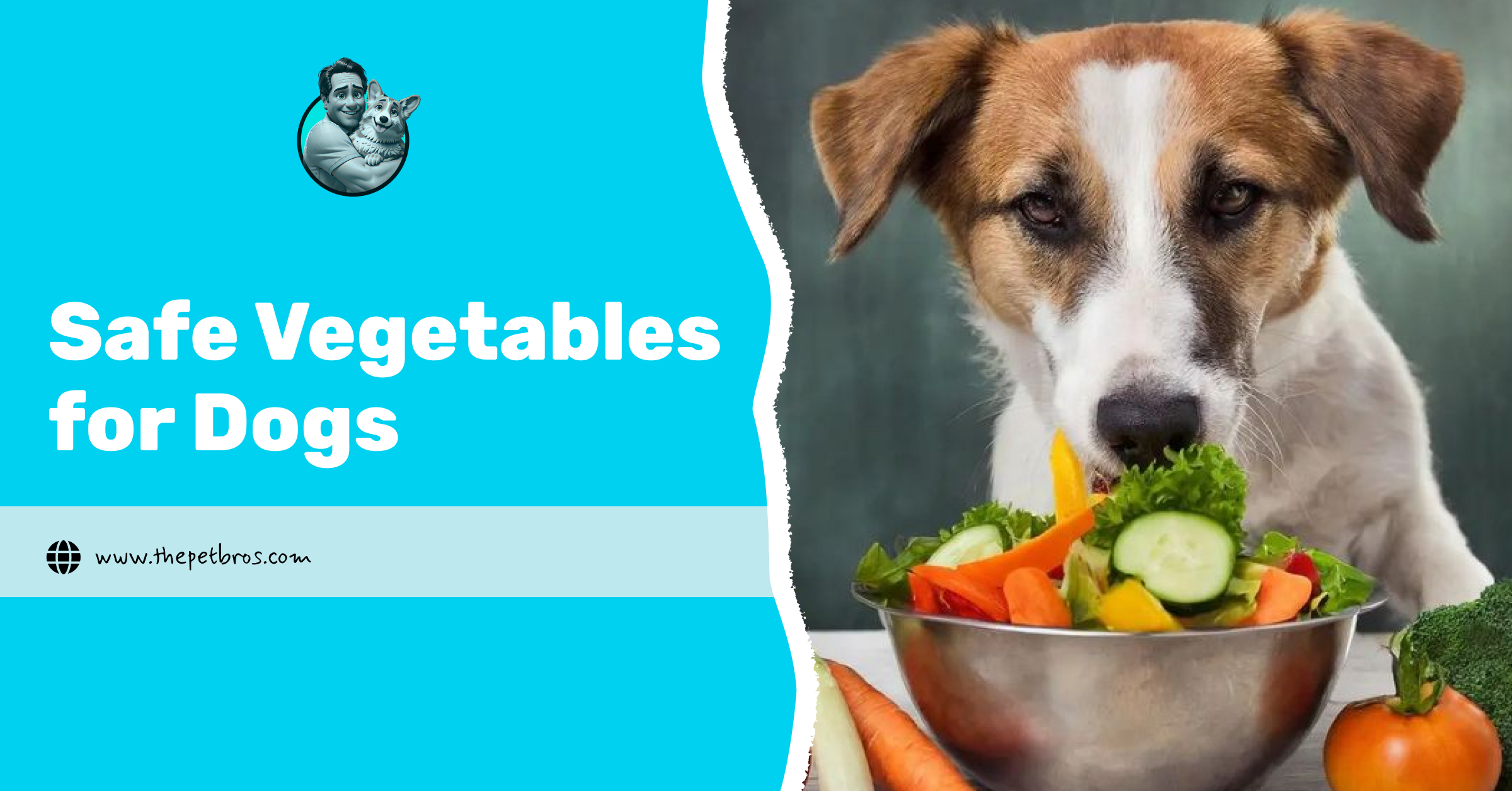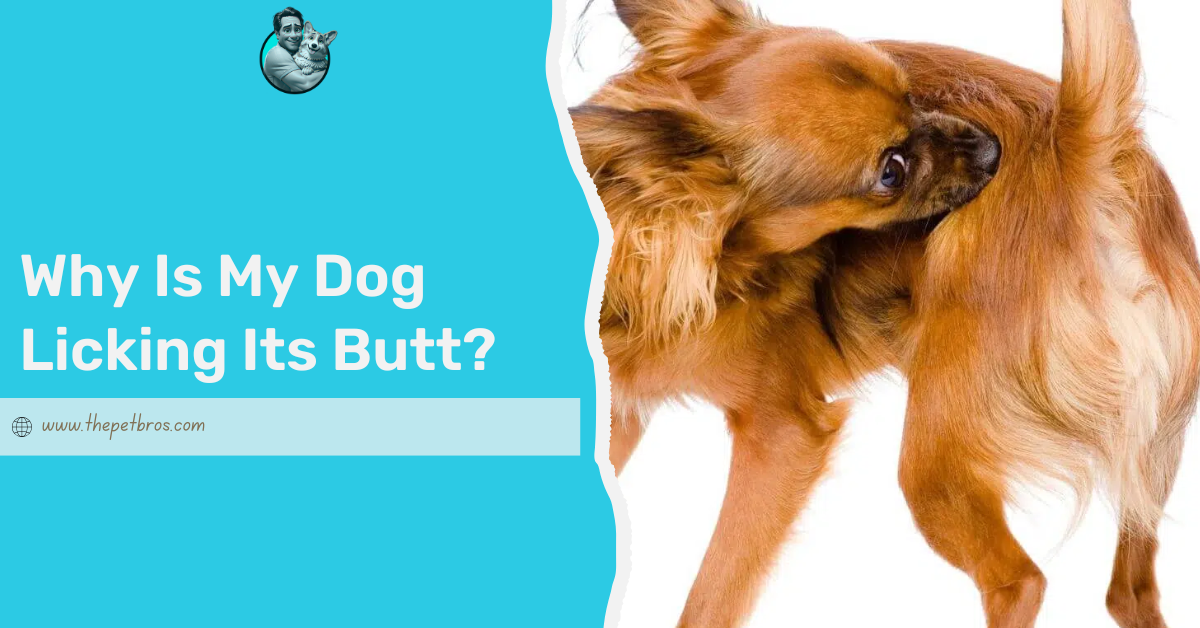When you’re munching on a crisp apple or a handful of blueberries, it’s natural to look down and see your furry friend looking up at you with those big, hopeful eyes. As a pet parent, you’ve probably wondered, “Can dogs eat fruits and vegetables?” After all, we know these foods are packed with vitamins and nutrients that benefit us humans. But is the same true for our canine companions? Well, let’s find out…
So, Can Dogs Eat Fruits and Vegetables?
Yes, dogs can eat fruits and vegetables, but not all of them are safe or beneficial for them. While certain fruits and veggies can be a healthy addition to a dog’s diet, providing vitamins, fibre, and hydration, others can be harmful and even toxic. It’s important to know which ones are safe and how to prepare them properly to ensure your pet’s safety.
So, which vegetables and fruits can your dog eat and which ones should they not eat?
What Fruits Can Dogs Eat?
Here’s a closer look at some of the fruits that are safe for dogs to enjoy; these fruits can make excellent, healthy snacks for your dog when served correctly and in moderation:
- Apples: “All dogs love apples.” They’re packed with vitamins A and C, which support a healthy immune system, and fibre that aids digestion. Just be sure to remove the seeds and core, as they contain small amounts of cyanide, which is toxic to dogs.
- Blueberries: Blueberries are loaded with antioxidants that help fight free radicals and support overall health. Plus, they’re low in calories, making them a perfect guilt-free treat.
- Watermelon: On a hot day, a juicy slice of watermelon can be a great way to keep your dog hydrated. Watermelon is mostly water and also provides vitamins A, B6, and C. Just make sure to remove the seeds and rind before giving it to your dog to avoid any digestive worries.
- Bananas: Bananas can provide an energy boost for your dog. They also contain fibre, which is great for digestion, but they are high in sugar, so only give your dog small amounts.
- Pineapple: Fresh pineapples are filled with vitamins C and B6 and enzymes that aid digestion. Make sure to remove the tough outer skin and serve only the soft, juicy flesh.
- Strawberries: Strawberries are not only delicious but also packed with fibre and vitamin C. They even contain an enzyme that can help whiten your dog’s teeth!
- Cantaloupe: Cantaloupe is a hydrating fruit that offers fibre and vitamins A and C, which are great for your dog’s skin and eyesight.
- Pears: Pears are a sweet, crunchy snack that’s high in fibre and vitamins C and K. Just like with apples, ensure you remove the seeds and core, as they contain cyanide.
- Mango: It’s rich in vitamins A, B6, C, and E. Just remember to remove the pit, as it can be a choking hazard and contains small amounts of cyanide.
- Peaches: Fresh peaches are a great source of vitamins A and C, but they need to be served carefully. Remove the pit, as it can be poisonous, and cut the fruit into small pieces. Avoid canned peaches because they often contain added sugars and preservatives.
- Oranges: Oranges are packed with vitamin C and can give your dog a nice boost of hydration. Make sure to peel them and remove any seeds. Due to their acidity and sugar content, give them in small amounts only to avoid upsetting your dog’s stomach.
- Coconut (flesh only): Avoid giving coconut water, though, as it’s high in potassium.
Other fruits include:
- Raspberries
- Cranberries
- Blackberries
- Kiwi
- Papaya
- Honeydew
What Vegetables Can Dogs Eat?
Here are a few healthy vegetables that your dogs can enjoy:
- Carrots: Crunchy and sweet, carrots are low in calories and high in fibre, which is great for digestion. Carrots are also rich in beta-carotene, which the body converts to vitamin A, and are excellent for your dog’s vision and immune system.
- Green Beans: Green beans are a low-calorie snack full of vitamins A, C, and K, along with fibre and iron, which support overall health.
- Broccoli: This nutrient-packed vegetable is high in fibre and vitamin C, making it a great choice in small amounts. Broccoli florets can help improve digestive health, but too much can cause gas. Serve it steamed or raw, but make sure to cut it into small, bite-sized pieces.
- Cucumber: Cucumbers are perfect for keeping your dog hydrated due to their high water content. They’re also low in calories, which is great for dogs on a weight-loss plan.
- Sweet Potatoes: Sweet potatoes are rich in fibre, vitamins A and C, and other essential nutrients that support digestive health and boost the immune system. They can be served cooked and mashed or cut into small pieces, but avoid adding any butter, salt, or spices.
- Peas: Peas, whether garden peas, snow peas, or sugar snap peas, are full of vitamins, minerals, and protein. However, avoid canned peas that often contain added sodium.
- Spinach: Spinach is rich in iron, antioxidants, and vitamins A, B, C, and K, which help boost the immune system and support overall health. However, it should be given in moderation due to its high oxalate content, which can interfere with calcium absorption.
- Zucchini: Zucchini is a low-calorie vegetable that’s easy to digest and contains fibre, vitamins, and minerals. It’s great for weight management and can be served raw, steamed, or grilled in small, manageable pieces.
- Pumpkin: Pumpkin is a fantastic source of fibre and beta-carotene, which can help regulate a dog’s digestive system. It also helps with both diarrhoea and constipation.
Other vegetables are:
Fruits and Vegetables That Are Harmful to Dogs
Here’s a list of fruits and vegetables that dogs should never eat:
- Grapes and Raisins: Grapes and raisins can lead to sudden kidney failure, even in small amounts. If you suspect your dog has eaten grapes or raisins, contact your veterinarian immediately.
- Cherries: While the fleshy part of the cherry is safe, the pits, stems, and leaves contain cyanide, which is poisonous to dogs. Ingesting these parts can cause difficulty breathing, red gums, and even shock. It’s best to avoid cherries altogether to prevent any risk.
- Avocado: Avocado contains a substance called persin, which can cause vomiting, diarrhoea, and other health issues in dogs. The pit can cause intestinal blockage if swallowed.
- Onions and Garlic: Onions, garlic, and other members of the allium family (like leeks and chives) can cause gastrointestinal irritation and damage red blood cells, leading to anaemia. All forms, whether raw, cooked, or powdered, are dangerous.
- Tomatoes (unripe or leaves/stems): While ripe tomatoes are generally safe in small amounts, unripe tomatoes and the green parts of the plant contain solanine, which can cause drooling, stomach upset, and confusion.
- Wild Mushrooms: While store-bought mushrooms like button mushrooms are generally safe, wild mushrooms can be extremely toxic and potentially fatal to dogs. They can cause severe symptoms like abdominal pain, vomiting, diarrhoea, liver damage, and seizures.
Other vegetables and fruits you mustn’t feed your dog are:
- Rhubarb
- Apple Seeds and Cores
- Persimmons
- Apricots
If you suspect your dog has eaten any of these harmful foods, it’s crucial to contact your veterinarian immediately.
Incorporating fruits and vegetables into your dog’s diet can be a fantastic way to boost their nutrition, provide variety, and offer tasty treats. While many fruits and veggies like apples, carrots, blueberries, and green beans are safe and healthy for dogs, others, such as grapes, onions, and avocados, can be dangerous and should be avoided.
So, can dogs eat fruits and vegetables? The answer is yes but with careful selection and preparation. It’s crucial to know which ones are beneficial and which ones could pose a risk to your furry friend’s health.
If you’re looking for the best options to add to your dog’s diet out of the long list of fruits and vegetables discussed in this article, consider checking out our article on the Top 10 Best Fruits and Vegetables for Dogs. It offers a detailed look at the most nutritious and dog-friendly choices that can help keep your pet healthy and happy.
Frequently Asked Questions
Are carrots safe for dogs to eat?
Absolutely! Carrots are a fantastic low-calorie snack for dogs. They are high in fibre, which is great for digestion, and beta-carotene, which supports eye health and a strong immune system.
Can dogs eat grapes or raisins?
No, dogs should never eat grapes or raisins. They are highly toxic and can cause sudden kidney failure, even in small amounts.
Is watermelon safe for dogs?
Yes, watermelon can be a refreshing and hydrating treat for dogs, especially on hot days. However, make sure to remove the seeds before serving, as these can block your dog’s intestines.
Can dogs have tomatoes?
Ripe tomatoes are generally safe for dogs in small quantities, but it’s important to avoid unripe tomatoes and the green parts of the tomato plant (like the leaves and stems).
Are blueberries good for dogs?
Yes, blueberries are good for dogs! They are packed with antioxidants, fibre, and vitamins, which help support overall health and can fight free radicals.
Can dogs eat avocado?
No, dogs should avoid eating avocados. They contain persin, a toxin that can cause vomiting and diarrhoea in dogs.
What vegetables should dogs avoid?
Dogs should avoid onions, garlic, leeks, and chives, as these can damage their red blood cells and lead to anaemia. Other vegetables to avoid include raw potatoes (especially if they are green) and rhubarb, both of which can be toxic to dogs.
Can puppies eat fruits and vegetables?
Yes, puppies can eat certain fruits and vegetables, but their digestive systems are still developing, so it’s important to introduce these foods slowly and in small amounts.






